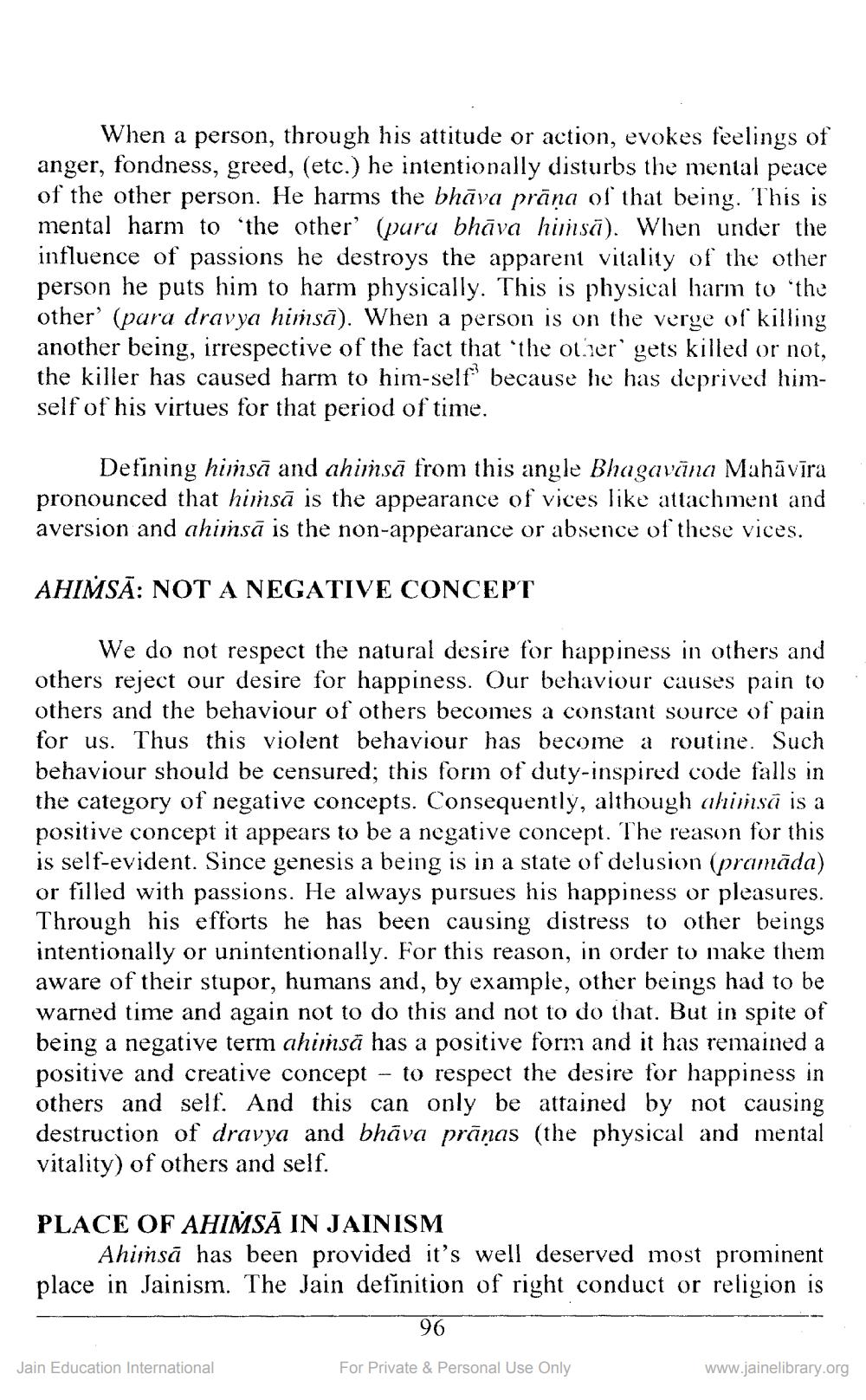________________
When a person, through his attitude or action, evokes feelings of anger, fondness, greed, (etc.) he intentionally disturbs the mental peace of the other person. He harms the bhāva prāņa of that being. This is mental harm to the other' (paru bhāva hisā). When under the influence of passions he destroys the apparent vitality of the other person he puts him to harm physically. This is physical harm to the other' (para dravya himsā). When a person is on the verge of killing another being, irrespective of the fact that the other' gets killed or not, the killer has caused harm to him-self because he has deprived himself of his virtues for that period of time.
Defining himsā and ahiisā from this angle Bhagavana Mahāvīra pronounced that hiinsa is the appearance of vices like attachment and aversion and ahisā is the non-appearance or absence of these vices.
AHIMSĀ: NOT A NEGATIVE CONCEPT
We do not respect the natural desire for happiness in others and others reject our desire for happiness. Our behaviour causes pain to others and the behaviour of others becomes a constant source of pain for us. Thus this violent behaviour has become a routine. Such behaviour should be censured; this form of duty-inspired code falls in the category of negative concepts. Consequently, although ahimsa is a positive concept it appears to be a negative concept. The reason for this is self-evident. Since genesis a being is in a state of delusion (pramāda) or filled with passions. He always pursues his happiness or pleasures. Through his efforts he has been causing distress to other beings intentionally or unintentionally. For this reason, in order to make them aware of their stupor, humans and, by example, other beings had to be warned time and again not to do this and not to do that. But in spite of being a negative term ahiinsä has a positive form and it has remained a positive and creative concept - to respect the desire for happiness in others and self. And this can only be attained by not causing destruction of dravya and bhāva prāņas (the physical and mental vitality) of others and self.
PLACE OF AHIMSĀ IN JAINISM
Ahimsā has been provided it's well deserved most prominent place in Jainism. The Jain definition of right conduct or religion is
96
Jain Education International
For Private & Personal Use Only
www.jainelibrary.org




